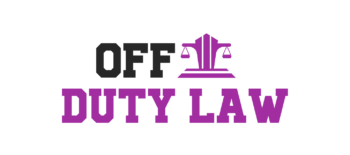As the digital age continues to evolve, the proliferation of misinformation and fake news on social media platforms has become a growing concern. In response to this challenge, legislators around the world are implementing various measures to address the dissemination of false information and safeguard the integrity of online information. This article delves into some of the key legislative responses that aim to combat misinformation and fake news on social media platforms.

1. Fact-Checking Requirements
One approach taken by lawmakers is to mandate fact-checking requirements for social media platforms. Under such legislation, platforms would be required to implement mechanisms to verify the accuracy of the information being shared on their platforms. This may involve partnering with independent fact-checking organizations or developing in-house fact-checking capabilities. By holding platforms accountable for the veracity of the content they host, these measures aim to curb the spread of misinformation.
2. Transparency Measures
Transparency measures are another legislative response to combat misinformation on social media platforms. These measures often require platforms to disclose information about the sources of content, including the identities of individuals or organizations behind them. By increasing transparency, users can better evaluate the credibility of the information they encounter. Additionally, these measures may also require platforms to clearly label or flag content that has been identified as false or misleading.
3. Algorithmic Accountability
Some legislators are also focusing on the algorithms used by social media platforms to curate and display content. Algorithmic accountability measures aim to ensure that platforms’ algorithms are not amplifying or prioritizing false or misleading information. These measures may require platforms to regularly audit and disclose information about their algorithms, allowing for independent evaluation of their impact on information quality.
4. User Education and Media Literacy
Recognizing the importance of user education and media literacy, some legislative responses address this issue directly. These measures often include provisions for educational campaigns, integrating media literacy into school curricula, and promoting critical thinking skills. By equipping users with the necessary tools to identify misinformation, these initiatives aim to empower individuals to make informed judgments about the content they encounter on social media platforms.
5. International Cooperation
Given the global nature of social media platforms, legislative responses often emphasize international cooperation. This involves collaboration between governments, social media platforms, and other stakeholders to develop common standards and guidelines for addressing misinformation. International cooperation can enable the sharing of best practices, enhance coordination in tackling cross-border misinformation campaigns, and promote a unified approach to combating fake news.
The rise of misinformation and fake news on social media platforms has sparked legislative responses worldwide. Fact-checking requirements, transparency measures, algorithmic accountability, user education, and international cooperation are some of the key strategies being employed to combat this issue. By implementing these measures, legislators aim to protect the public from the harmful effects of misinformation and safeguard the integrity of online information.










